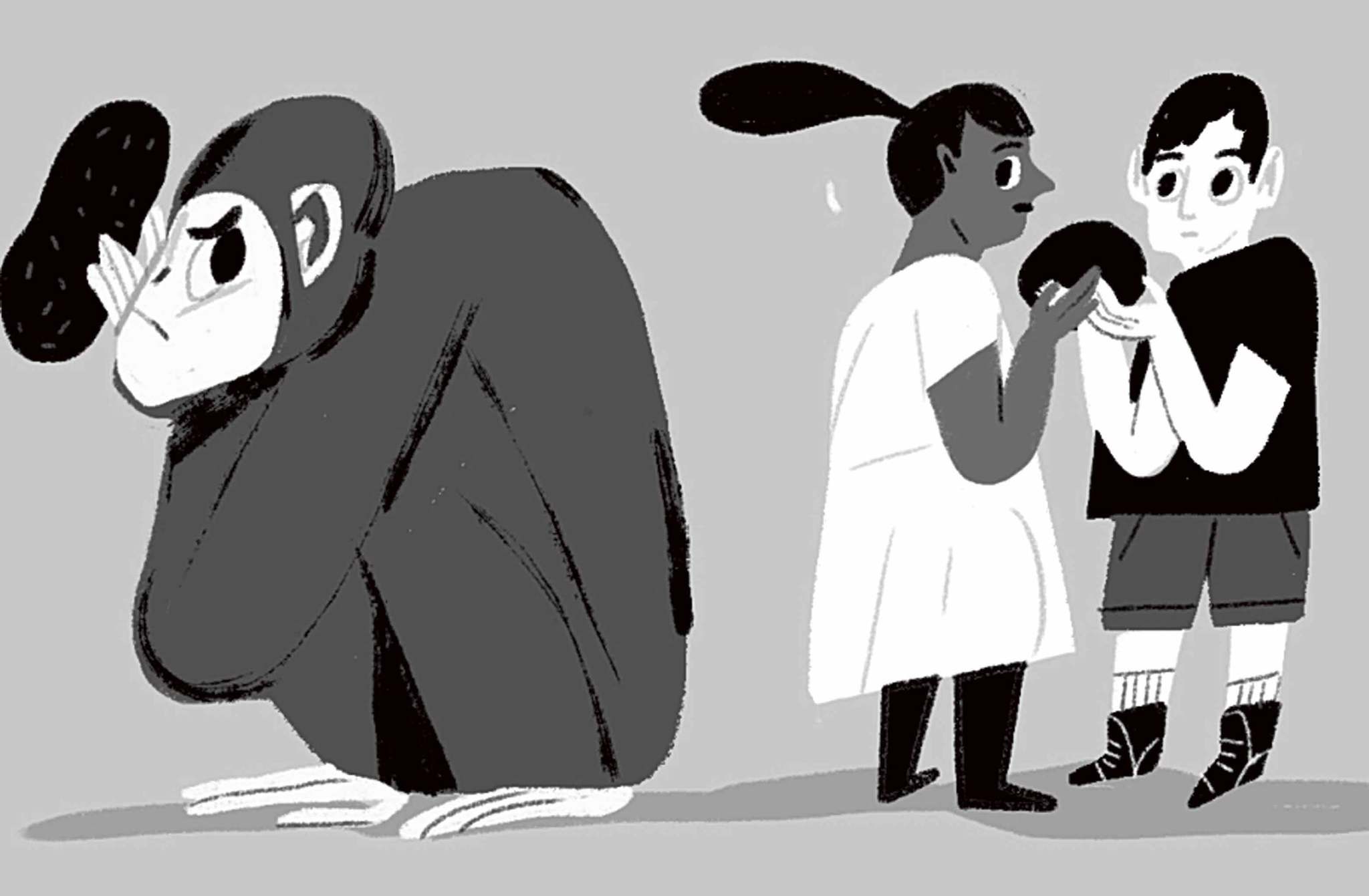'Is morality the result of evolution?'
'Pop-science books often talk about things like the evolution of morality from a simplistic, adaptationist standpoint'

The implications of this question are quite broad. The altruistic behaviour that manifests in our minds as "morality" may actually be one of our species-defining features. Traditionally, altruism has been defined in terms of maths – rB > C, where "C" is the cost of the action, "B" is the benefit and "r" is the "relatedness". So as long as the benefit exceeds the cost when relation is factored in (eg a man might jump into a dangerous, raging river to save his brother, but might not do so for a stranger).
Interestingly however, humans seem to violate this sometimes. A recent study showed that children would work together and voluntarily give their own rewards to other children to help them along, while chimps in a similar situation would fight over rewards (and their parents would even steal the rewards from them).
This supports the idea that humans – who first and foremost descend from a primate lineage (primates are extremely competitive) – went through a hunting and gathering phase, which requires sophisticated cooperation. This focused our big brains into more social, more cooperative group behaviour. But since we are still very much a "pioneer species", this breaks down in certain situations and overwhelmingly competitive behaviour takes precedence over what we would define as "moral" behaviour. This dichotomy can be seen anywhere from the level of individual interactions all the way up to international relations.
Jonathon Keeney, graduate student in neuroscience
If you believe in evolution, then you ought to accept that if a human capability exists, it resulted from evolution. Believe whatever you want about what processes may or may not have guided that evolution – god(s), giant space lemmings, blind processes of chance and contingency – but the capability must have arisen through genetic evolution.
This is not to say that we are kept on a tight leash by hardwired biological imperatives, and that we don't make real choices. We have a wide degree of flexibility in how we respond to moral dilemma as individuals, and culture also has a major influence on our moral choices. So "my genes made me do it" is seldom a good excuse.
Pop-science books often talk about things like the evolution of morality from a simplistic, adaptationist standpoint, declaring that conditions at some time or other in human history made it evolutionary advantageous to be moral. But before assuming morality was and is adaptive, you have to prove it first.
Shan Kothari, PhD student in plant ecology
These are edited answers. For the full versions, go to the online Q&A service quora.com
Join our commenting forum
Join thought-provoking conversations, follow other Independent readers and see their replies
Comments